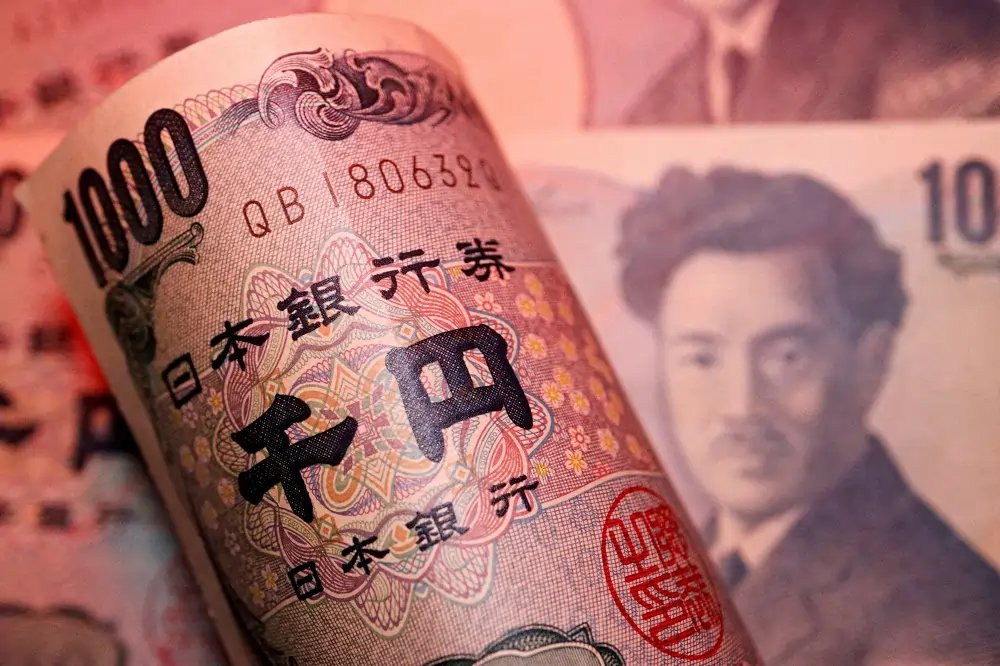Election concerns in France give euro worst week in two months


By Karen Brettell
(Reuters) -The euro was on track for its biggest weekly fall against the dollar in two months on Friday on concerns that a new government will worsen France’s fiscal situation as a snap parliamentary election approaches.
The yen hit a six-week low against the dollar, before rebounding, after the Bank of Japan (BOJ) surprised markets with a dovish monetary policy update.
French markets saw the biggest weekly jump since 2011 in the premium that investors demand to hold French government debt, and bank stocks tumbled.
“On both ends of the French political spectrum, the parties that are campaigning are fiscally expansionist parties,” said Karl Schamotta, chief market strategist at Corpay in Toronto. “Markets are mostly responding to additional fiscal stress.”
French Finance Minister Bruno Le Maire said on Friday that the euro zone’s second-biggest economy was at risk of a financial crisis if either the far right or left won because of their heavy spending plans.
Marine Le Pen’s eurosceptic National Rally (RN) is leading in opinion polls following President Emmanuel Macron’s surprise decision last Sunday to call a snap election.
The euro is on track for a 1.05% weekly fall – its biggest since April – and was last down 0.47% at $1.0685. It got as low as $1.06678, the lowest since May 1.
The euro’s weakness has helped drive the dollar higher. The dollar index – which tracks the currency against six peers – was up 0.21% at 157.36 and reached 105.80, the highest since May 2.
“We’re seeing flows into the U.S. on both ends of the spectrum – from the safe-haven side as well as on the yield-seeking side – given that U.S. yields remain well above those available elsewhere,” said Schamotta.
The European Central Bank and Bank of Canada have begun cutting rates while the Federal Reserve holds steady.
The U.S. central bank adopted a more hawkish than expected tone at this week’s meeting when Fed officials projected only one rate cut this year and pushed out the start of rate cuts to perhaps as late as December.
A survey on Friday showed that U.S. consumer sentiment deteriorated in June as households worried about inflation and incomes.
The yen fell after the BOJ’s decision to hold interest rates and restart bond buying.
In a surprise for markets, the BOJ said it would continue to buy government bonds at the current pace for now and lay out details of its tapering plan at its July policy meeting.
BOJ governor Kazuo Ueda said the central bank was “paying close attention” to the impact of the weak yen on inflation, and added that a rate hike in July was a possibility, depending on economic data.
The dollar was last up 0.21% at 157.36 yen , after earlier reaching 158.26, the highest since April 29.
The yen’s decline to a 34-year low of 160.245 per dollar at the end of April triggered several rounds of official Japanese intervention totaling 9.79 trillion yen ($62 billion).
In cryptocurrencies, bitcoin gained 0.36% to $66,920.
(Reporting By Karen Brettell; Editing by Kevin Liffey and Andrew Heavens)
The euro is the official currency of the Eurozone, used by 19 of the 27 European Union member countries. It is managed by the European Central Bank and is the second most traded currency in the world.
Monetary policy refers to the actions taken by a central bank to manage the money supply and interest rates in an economy. It aims to achieve macroeconomic objectives such as controlling inflation and stabilizing currency.
A financial crisis is a situation in which the value of financial institutions or assets drops significantly. It can lead to a loss of confidence in the financial system, resulting in economic downturns.
Consumer sentiment is a measure of how optimistic or pessimistic consumers are regarding their expected financial situation. It influences their spending and saving behaviors, impacting overall economic performance.
Foreign currency refers to any currency that is not the domestic currency of a particular country. It is used in international trade and investment and can fluctuate in value against other currencies.
Explore more articles in the Top Stories category











